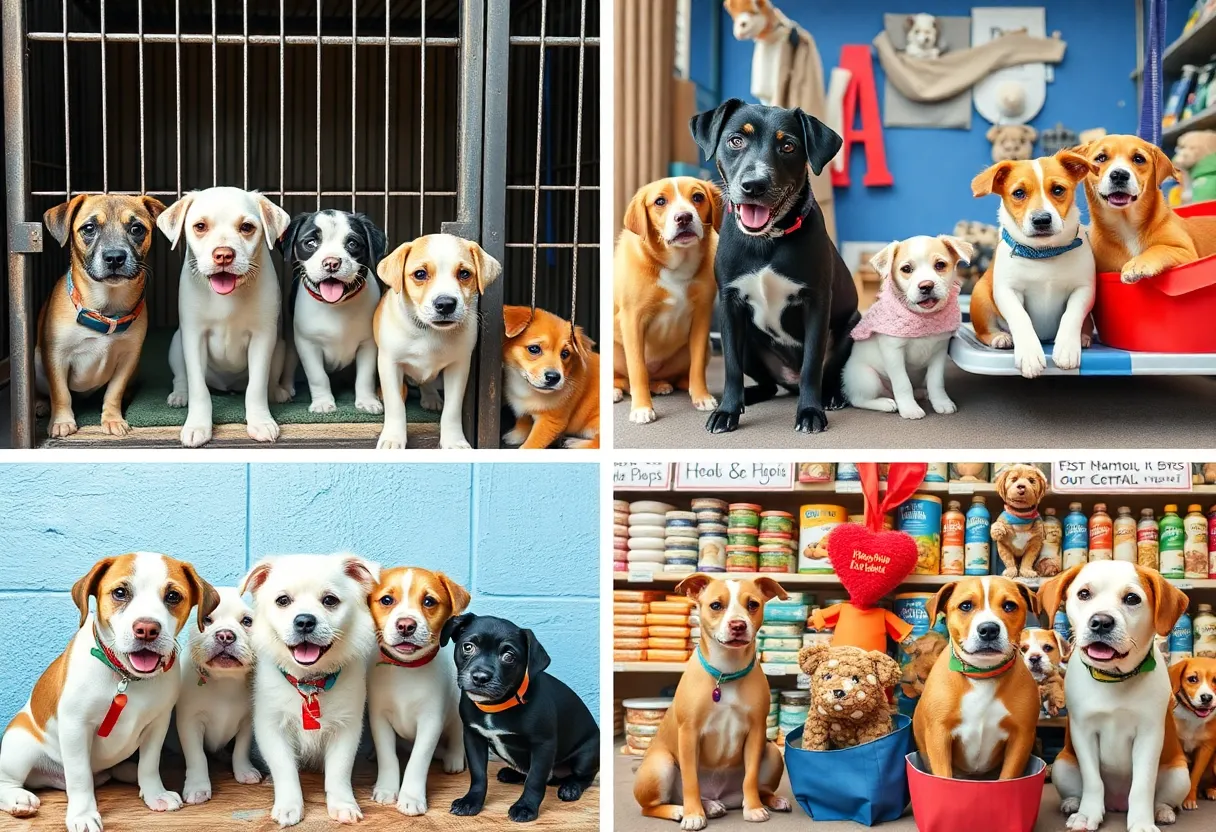News Summary
Texas legislators are debating a bill that would prohibit pet stores from selling dogs and cats. Following alarming testimonials from families affected by sick pets, the bill aims to improve animal welfare and curb unethical breeding practices linked to puppy mills. While advocates praise the proposed legislation, opponents express concerns about potential impacts on the regulated breeding market. This discussion highlights the ongoing challenge of balancing animal welfare, consumer protection, and business interests in the state.
Austin, Texas – Texas lawmakers are currently considering a bill aimed at prohibiting pet stores in the state from selling dogs and cats. This legislative move follows disturbing testimony from a North Texas family, who revealed they spent $20,000 attempting to save a sick dog purchased from a Carrollton pet store. The unfortunate canine was diagnosed with 14 different illnesses over a span of 81 days, eventually requiring liver surgery.
The Senate Business and Commerce Committee is reviewing this proposed legislation, introduced by Senator Judith Zaffirini, a Democrat from Laredo. An identical proposal, initiated by Representative Jared Patterson, a Republican from Frisco, received approval from a House committee the previous week, indicating a growing consensus among lawmakers about the need for reform in the pet sale industry.
If passed, the bill would impose a civil penalty of up to $500 per day for any pet store found violating the ban by selling or offering dogs or cats for sale. However, the legislation does allow pet stores to allocate space for animal control agencies and nonprofit organizations to showcase animals available for adoption, potentially fostering a greater community focus on humane pet ownership.
Animal advocacy groups have been vocal in their support of the bill, citing a significant concern regarding the operations of puppy mills. These mills, often located outside Texas, employ poor breeding practices and subject animals to harsh conditions prior to shipping them for sale in pet stores. The bill’s proponents argue that banning pet store sales will combat this detrimental marketplace and enhance the welfare of animals across the state.
Conversely, opponents of the bill express fears that instituting such a ban may lead to a less regulated network of breeders, potentially exacerbating the problem. Notably, Dallas implemented a similar ban on pet store sales in 2022, resulting in the closure of a local Petland store. Critics argue that lawmakers should address bad breeding practices directly instead of penalizing legitimate businesses.
Currently, Texas lacks a statewide law regulating pet store sales, leading to a significant gap in consumer and animal protections. Proponents of the legislation assert that many puppies sold in pet stores may suffer from health issues stemming from irresponsible breeding, resulting in high veterinary bills for unsuspecting pet owners. In stark contrast, pet store owners contend that the bill unfairly targets small businesses without addressing the root of the issue, which they claim lies with unscrupulous breeders.
Members of the pet store industry have raised alarms about the potential fallout of the proposed ban. The owner of Pet City Houston voiced concerns that the bill could jeopardize his business, while the operator of a Petland in San Antonio emphasized how such legislation would threaten legitimate commercial enterprises. Supporters of the bill maintain that it opens up opportunities for local breeders and promotes the adoption of shelter animals.
Some experts have warned that a ban on pet sales could push consumers toward unregulated sources, thereby worsening the welfare of pets. Legislative discussions around potentially regulating or banning pet store sales are ongoing and have experienced multiple iterations over recent years. Previous legislative attempts to address the issue of puppy mills and pet sales have stalled despite passing both the House and Senate, and the current Texas law does not adequately protect consumers or animals from bad commercial practices.
While the pet store industry represents only about 4% of overall pet sales, advocates assert that reform is essential to achieving meaningful progress in animal welfare. The Texas Humane Legislation Network has expressed an optimistic outlook toward pursuing an ethical pet sales bill in the future, hopeful for new opportunities arising in 2025.
Overall, legislative discussions continue as Texas lawmakers evaluate the implications of the proposed bill, balancing concerns over animal welfare, business interests, and consumer protections amid varied opinions from stakeholders in the pet care community.
Deeper Dive: News & Info About This Topic
HERE Resources
Dallas Faces Potential Changes to Governmental Immunity
Legal Tug-of-War Unfolds in Texas Over Software Access
New Sprouts Farmers Market Opening in Oak Cliff and McKinney
North Texas Grapples with Traffic Woes Amid Population Growth
Additional Resources
- Community Impact: Pet Supplies Plus Closes Store
- Wikipedia: Puppy Mills
- Dallas News: Effort Targeting Puppy Mills
- Google Search: Texas Pet Store Sales Legislation
- CBS Austin: New York State Pet Store Ban
- Encyclopedia Britannica: Animal Rights
- Shopify: Tomlinson’s Case Study
- Google News: Pet Sales Legislation Texas

Author: STAFF HERE DALLAS WRITER
The DALLAS STAFF WRITER represents the experienced team at HEREDallas.com, your go-to source for actionable local news and information in Dallas, Dallas County, and beyond. Specializing in "news you can use," we cover essential topics like product reviews for personal and business needs, local business directories, politics, real estate trends, neighborhood insights, and state news affecting the area—with deep expertise drawn from years of dedicated reporting and strong community input, including local press releases and business updates. We deliver top reporting on high-value events such as the State Fair of Texas, Deep Ellum Arts Festival, and Dallas International Film Festival. Our coverage extends to key organizations like the Dallas Regional Chamber and United Way of Metropolitan Dallas, plus leading businesses in telecommunications, aviation, and semiconductors that power the local economy such as AT&T, Southwest Airlines, and Texas Instruments. As part of the broader HERE network, including HEREAustinTX.com, HERECollegeStation.com, HEREHouston.com, and HERESanAntonio.com, we provide comprehensive, credible insights into Texas's dynamic landscape.





